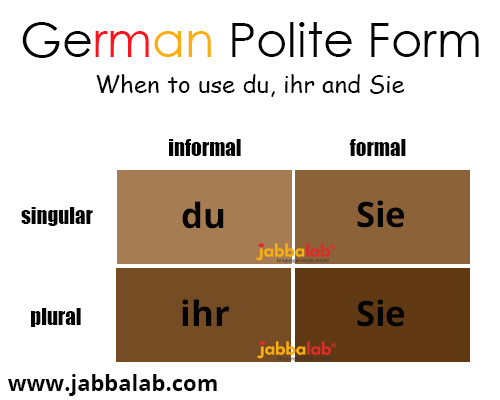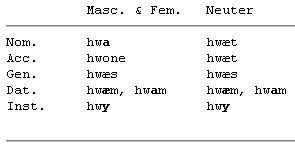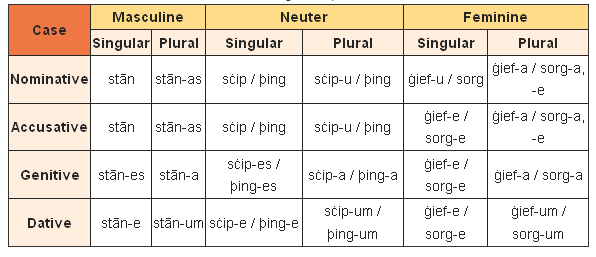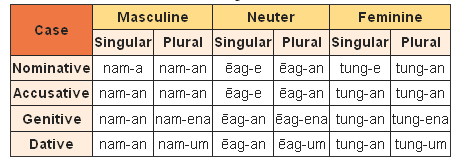Old english pronouns
By: Aziza and Kanykey

Content:
1. Old english pronouns
2. Old English adverbs
3. Old English nouns
2. Old English adverbs
3. Old English nouns
Old English pronoun
Pronouns were the only part of speech in Old English which preserved the dual number in declension, but only this makes them more archaic than the rest parts of speech. Most of pronouns are declined in number, case and gender, in plural the majority have only one form for all genders.

Personal Pronouns

gé -> you
The
polite form replaced the colloquial one, maybe due to the English traditional
"ladies and gentlemen" customs.
In Irish Gaelic -> no polite forms
Slavic, Baltic, German people make a thorough distinction between speaking to a friend and to a stranger
In Irish Gaelic -> no polite forms
Slavic, Baltic, German people make a thorough distinction between speaking to a friend and to a stranger

The word for "she" was héo in Old English. The word she probably comes from the feminine demonstrative pronoun séo, which derives from the Common Germanic *sjó. But the exact origin of this simple word is unknown, and there is even a version that it came from Celtic languages (Irish sí [shee]) or from Scandinavian.
Demonstrative pronouns

Both demonstrative pronouns come from the same two Proto-Indo-European stems: *so- / *sa- and *to-.
Originally, in Indo-European languages there was a three-grade system of demonstrative pronouns, namely "this, next to me", "this, next to you", "that, far from both of us".
But, as well as many branches of the family, Germanic languages left only two of them, simplifying the structure to just "this" and " that".
Originally, in Indo-European languages there was a three-grade system of demonstrative pronouns, namely "this, next to me", "this, next to you", "that, far from both of us".
But, as well as many branches of the family, Germanic languages left only two of them, simplifying the structure to just "this" and " that".
Interrogative pronouns

hwá means 'who?', hwæt is 'what?'
Interesting that the instrumental of the word hwæt, once being a pronoun form, later became the word why in English. So 'why?' is originally an instrumental case of the interrogative pronoun.
Interesting that the instrumental of the word hwæt, once being a pronoun form, later became the word why in English. So 'why?' is originally an instrumental case of the interrogative pronoun.
hwilc 'which?'
hwonne 'when?'
hwæ'r 'where?'
hwider 'whither?'
hwonan 'whence?'
hwonne 'when?'
hwæ'r 'where?'
hwider 'whither?'
hwonan 'whence?'
Other kinds of pronouns
a) definite
gehwá (every)
gehwilc (each)
ægþer (either)
æ'lc (each)
swilc (such)
sé ylca (the same)
gehwá (every)
gehwilc (each)
ægþer (either)
æ'lc (each)
swilc (such)
sé ylca (the same)
b) indefinite
sum (some),
æ'nig (any)
c) negative
nán, næ'nig (no, none)
d) relative
þe (which, that)
séþe (which, that)
Bibliography:
1. https://en.wikibooks.org Old English Nouns
2. http://babaev.tripod.com Old English Pronouns
3. http://www.jebbo.co.uk Old English Pronouns
2. http://babaev.tripod.com Old English Pronouns
3. http://www.jebbo.co.uk Old English Pronouns

thank you!
the old enlgish Adverbs
Adverb tells about time, the place, reason and manner of an action.
Averbs can be either primary (original adverbs) or derive from the adjectives.
Old English the basic primary adverbs
þa (then)
þonne (then)
þæ'r (there)
þider (thither)
nú (now)
hér (here)
hider (hither)
heonan (hence)
þonne (then)
þæ'r (there)
þider (thither)
nú (now)
hér (here)
hider (hither)
heonan (hence)
sóna (soon)
oft (often)
eft (again)
swá (so)
hwílum (sometimes).
eft (again)
swá (so)
hwílum (sometimes).
Secondary adverbs -> add the suffix -e: wide (widely), déope (deeply), fæste (fast), hearde (hard).
Another major sugroup of them used the suffixes -líc, -líce from more complexed adjectives: bealdlíce (boldly), freondlíce (in a friendly way).
In Old English, nouns were inflected to add little bits of extra information to communicate their function within the sentence and the number of the noun (whether singular or plural).
Adverbs, as well as adjectives, had their degrees of comparison:
wíde - wídor - wídost (widely - more widely - most widely)
long - leng (long - longer)
feorr (far) - fierr
old english nouns
In Old English:
3 genders (masculine, neuter, feminine),
2 numbers (singular, plural),
5 cases (nominative, accusative, genitive, dative, instrumental).
3 genders (masculine, neuter, feminine),
2 numbers (singular, plural),
5 cases (nominative, accusative, genitive, dative, instrumental).
Note that the so-called "genders" were purely grammatical genders - they very often did not correspond to natural gender. For example the word wīf - "woman" is actually of the neuter (grammatical) gender, not the feminine (natural gender).
Noun Declensions
Nouns - two main categories of declension in Old English: "Strong" and "Weak" nouns.
If a noun belongs to a particular declension group, it can usually only be declined that way. Occasionally, you can decline an Old English noun one of several ways.
Strong Nouns
The strong noun paradigm declines for case, gender and singular/plural.

In the Nominative Plural and Accusative Plural of the Strong Neuter declension, a -u follows only after short syllables (a syllable which ends with 1 short vowel and 1 consonant), while neuters with long syllables (short vowel and 2 consonants or long vowel and one consonant) have no ending. Also, feminine nouns only take "-u" in the nominative singular if they have a short syllable.
Weak Declension
The weak paradigm is more simplified and has less variation between the genders and cases.

Indeclinable nouns
Some nouns are indeclinable. This means that they do not change at all according to case or number, but words that modify them, such as adjectives, still do; and verbs that they are used with also still change according to number.
Appositives
In Old English, as in Modern English, nouns could sometimes be used similarly to an adjective to modify another noun. These are called appositives. One example of appositives in Modern English is in titles: "Queen Elizabeth", "Brother John", "General Schwartzkopf", where "Queen", "Brother", and "General" are all nouns used to modify other nouns.
Thank you!